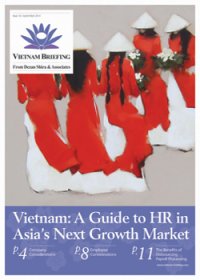Trade Ministers Report Progress on Trans-Pacific Partnership (TPP)
Trade Ministers and Heads of Delegation for the nations involved in the negotiations over the Trans-Pacific Partnership (TPP) have reported significant progress in the talks over market access and trade and investment rules. The recent talks took place in Canberra, Australia on October 25-27.
After the close of the meeting, negotiators stated that “the shape of an ambitious, comprehensive, high standard and balanced deal is crystallizing,” and pledged that they “will continue to consult widely at home and work intensely with each other to resolve outstanding issues.”
The TPP has brought together the countries of Australia, Brunei, Canada, Chile, Japan, Malaysia, Mexico, New Zealand, Peru, Singapore, the United States, and Vietnam. Upon completion, the TPP trade area would comprise a region with US$28 trillion in economic output, making up around 39 percent of the world’s total output. If the TPP is successfully implemented, tariffs will be removed on almost US$2 trillion in goods and services exchanged between the signatory countries. Thus, developing countries, like Vietnam, have much to gain from the implementation of the trade agreement, including drastically reduced tariffs in some of the world’s largest markets.
RELATED: Vietnam-U.S. Relationship Shows Continued Signs of Improvement, TPP Progressing
However, there are still roadblocks for the negotiators to overcome. Chief among these is the disagreement between the US and Japan over the agriculture and automobile sectors. Specifically, Japan wishes to keep large import duties on “ultra-sensitive” agricultural products, such as rice, wheat, beef, pork, dairy products, sugar, and starch. Additionally, Vietnam has expressed the desire to be exempted from some of the trade conditions, due to the fact that the country is not as well developed as others in the region.
The next official negotiation on the TPP is expected to be held during the upcoming Asia-Pacific Economic Cooperation meeting, which will be held next month in Beijing. The TPP is but one of many major trade deals under negotiation in the Asia region, other key deals include the Regional Comprehensive Economic Partnership (RCEP), the ASEAN Economic Community (AEC), and the EU-Vietnam FTA.
Asia Briefing Ltd. is a subsidiary of Dezan Shira & Associates. Dezan Shira is a specialist foreign direct investment practice, providing corporate establishment, business advisory, tax advisory and compliance, accounting, payroll, due diligence and financial review services to multinationals investing in China, Hong Kong, India, Vietnam, Singapore and the rest of ASEAN. For further information, please email asean@dezshira.com or visit www.dezshira.com.
Stay up to date with the latest business and investment trends in Asia by subscribing to our complimentary update service featuring news, commentary and regulatory insight.
Related Reading
Tax, Accounting, and Audit in Vietnam 2014-2015
The first edition of Tax, Accounting, and Audit in Vietnam, published in 2014, offers a comprehensive overview of the major taxes foreign investors are likely to encounter when establishing or operating a business in Vietnam, as well as other tax-relevant obligations. This concise, detailed, yet pragmatic guide is ideal for CFOs, compliance officers and heads of accounting who need to be able to navigate the complex tax and accounting landscape in Vietnam in order to effectively manage and strategically plan their Vietnam operations.
 An Introduction to Tax Treaties Throughout Asia
An Introduction to Tax Treaties Throughout Asia
In this issue of Asia Briefing Magazine, we take a look at the various types of trade and tax treaties that exist between Asian nations. These include bilateral investment treaties, double tax treaties and free trade agreements – all of which directly affect businesses operating in Asia.
 Vietnam: A Guide to HR in Asia’s Next Growth Market
Vietnam: A Guide to HR in Asia’s Next Growth Market
In this issue of Vietnam Briefing, we attempt to clarify human resources (HR) and payroll processes in Vietnam. We first take you through the current trends affecting the HR landscape and then we delve into the process of hiring and paying your employees. We next look at what specific obligations an employer has to their employees. Additionally, we guide you through the often complex system of visas, work permits, and temporary residence cards. Finally, we highlight the benefits of outsourcing your payroll to a “pan-Asia” vendor.
- Previous Article ASEAN Update: Understanding the Geopolitics of the South China Sea Dispute
- Next Article EU-Singapore Finalize Free Trade Agreement










